6 Ways to Avoid Those Social Media Landmines
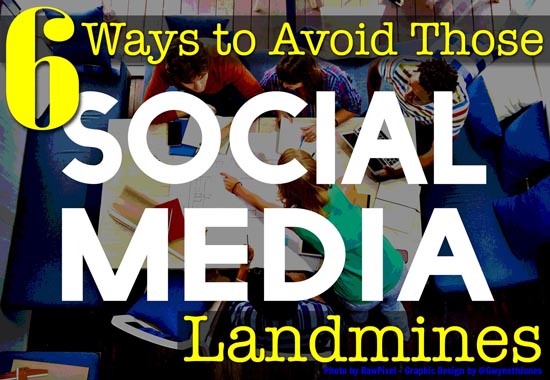 This article is planned to be published in the May issue of NEA Today Magazine (sadly, without my nifty custom graphic) but it's already online! So YAY! I guess I can share it with you early!
This article is planned to be published in the May issue of NEA Today Magazine (sadly, without my nifty custom graphic) but it's already online! So YAY! I guess I can share it with you early! I’ve been sharing on social media professionally for eight years now, and I have to admit, it can be kinda tricky. There is a goldmine of information out there for teachers, but also landmines that can be quite treacherous if not deftly avoided. As educators, I passionately believe we should use social media to push the positive, celebrate student successes, share resources with our colleagues, and connect with parents and the community. But how do we professionally use these tools without torturing ourselves over every Tweet, update, or Instagram pic? Easy! Try these six tips to share sensibly online.
Follow School District Policy
Does your district have a technology and social media policy? If so, read it and follow it to the letter. I’m so proud that my district has had a “Responsible Use of Technology and Social Media Policy” since 2002 and they update it every three years. Here’s one of the many parts that I agree with:
“Any postings by employees will not reference, link or contain: Statements that could be viewed as malicious, obscene, threatening or intimidating; that disparage students, employees, parents or community members; or that could be viewed as harassment or bullying.”
Well, duh! Seems obvious, right? But with some people, you HAVE to say that explicitly. Before you Tweet, post, or share—make sure you’re following the rules. I’m daring, but I’m not stupid, and I kinda love my job. (A LOT!)
Should You Follow Students?
No matter your school policy, the easiest answer is no. Do not follow or “friend” students. Sure, we all want to be cool, connect with our kiddos, and be there for them in a crisis, but there are too many potential hazards in following their lives on social media. My pat answer to students who ask me to follow their private Twitter or Instagram accounts goes something like this: “Sorry, no can do. Until you graduate I’m a teacher, not a friend. After you graduate, then maybe I can become a friend and a mentor.”
The warning to kiddos who have an open social media account that is NOT set to private: I clearly and firmly tell them that “anything I see that you post that is the least bit inappropriate, bullying, uncivil, illegal, against our school policy or state law, I am ethically and professionally impelled to act upon, inform the authorities, and call your Mama! Yes, I would totally tell on you and throw you under a school bus in a heartbeat for your own good and because I care.” Then I grin and say, "but someday, when you graduate, and are all grown up I'd be honored and pleased to follow you, sing your praises, and celebrate all of your future successes!"
((UPDATE: my District Teachers Union has since urged Teachers to not follow former students or parents, ever. It's just not worth it.))
I recently talked to my supervisor, Julie Alonso-Hughes, district coordinator of instructional technology and library media, about additional social media guidelines. She said, “It’s really all about common sense. If you saw suspicious behavior in the hallway, same rules apply, you would have to report it.” She also added a few handy hashtags to keep in mind: #youwouldntsaythattomyface, #thinkb4upost, #commonsense
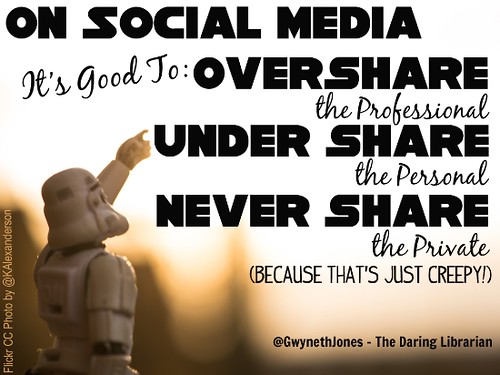
Don’t Share the Private. Do Share the Personal (Maybe)
On social media, it’s good to overshare the professional; under share the personal; and NEVER share the private. Because that’s just creepy!
There’s a big difference between sharing what is personal versus sharing what is private. We all know the professional tone to take when we talk face-to-face with kids, parents, and the community, but sometimes with the buffer of a keyboard we lose proper perspective. What sounds funny in your head doesn’t always translate to hilarious in the written word. You can delete a Tweet or a post but they can always be captured with a screenshot…and BOOM! Landmine! Best to err on the side of professional.
That’s not to say that I don’t occasionally post personal stuff on Twitter, Instagram, Scoopit, and Pinterest. I might share a Kindle quote from what I’m reading, a picture of my Mom’s perfect Thanksgiving turkey, or a selfie with a friend at an Ed Tech or Library conference. Sharing personal info shows you’re human, approachable, and authentic.
Do Share the Awesome!I #mustache you to enjoy these #shelfie pics! @hcpss_mhms #CelebrateHCPSS pic.twitter.com/6wHCWD13IP— Gwyneth Jones (@GwynethJones) February 3, 2017
I think the best way to use social media in school isn’t with kids but about kids. Without being preachy, we can be a role model for effective and ethical social media use to our kiddos and colleagues. Most of us have smartphones on us all the time, making it so easy to capture those exciting daily lessons, activities, projects, and general fun. With Instagram tied to my Twitter, I like to catch pictures of my students being awesome. From #Shelfies (kids posing with books they’ve checked out), science projects, robotics, school plays, impromptu dancing, lip dubs, to our Makerspace —this is an opportunity to connect with the community.
Make sure to check your school policy about publishing the faces of kids. If that is a concern or a confusion, or if you have kids who are camera shy, consider taking dynamic pictures from behind, not showing their faces but their hands doing, making, writing, and creating.
You Are What You Like and Re-Tweet
It may not seem fair, but you are what you and like, favorite, and share on social media. Sure, you may not have said it yourself, but a re-Tweet or “like” is an endorsement. Just ask any politician or public figure who has felt the heat for it. People can also see what you like or favorite. So, it’s best not to re-Tweet bad language or something controversial.
Be Human, but Avoid Dinner Party Topics
When it comes to controversial topics, think of social media like an enormous dinner party, taking place in public. Even if you have a disclaimer saying “opinions my own,” people will judge you (and your colleagues, your school, your district) for every touchy, snarky, hot-button personal or political opinion that you express. Keep personal topics for face to face conversations.
Of course, using the term “Bless your heart” is always correct and ever so nuanced! Believe me, I know that in these challenging and complicated political times and climes, this is harder to pull off than ever. But as my Mama would say, "there is such a thing as an unspoken thought."
I pray every night to never forget:
Bottom line: Social media is here to stay. It’s a powerful tool for educators that can transform your professional practice or blow up in your face. Before you get started, consider just lurking and listening for a while. Know this: You will never regret being kind. Don’t give toxic people, situations, or haters the time or energy…in life or on social media. Passion and positivity go a long way in almost all situations—and it’s a super start on social media!
UPDATE: April 2017 - the Magazine is out!
Srsly, I'm very honored to be asked to write for NEA Today Magazine. I've been an NEA member my whole teaching career - 25 years and counting! Resources & Credits:
What do you think? What people are saying, and further reading:
I Tweeted out the following question to our #EdChat PLN: “Do you follow students back if they follow you on social media? What's your school district or personal policy on that?”
and I got several interesting answers and opinions - why not add yours?Question: Do you follow students back if they follow you on Social Media?— Gwyneth Jones (@GwynethJones) January 1, 2017
What's your school district or personal policy on that?#edchat pic.twitter.com/IlOLm0k7oP
For more on this topic, search for my blog postings:
“Social Media Mind Shift,” “Tweet Like a Ninja,” and “Say Yes! To a School Instagram!”
On Twitter: To Follow or Not to Follow | EdutopiaOnline etiquette: The ultimate guide to social media manners - Mashable
by Nicholas Provenzano @TheNerdyTeacher - Edudemic
Search for the Howard County: Policy 8080: Responsible Use of Technology and Social Media
“Social media boundaries: Should teachers and students be friends?” Today Show
This article was greatly inspired by Keegan Korph, @OPSMrsKorf and her excellent Edublog post: “When Students Ask to Follow or Friend: An Ethical Response Guide for Educators.” (For additional online sources and material, check out the NEAToday app)
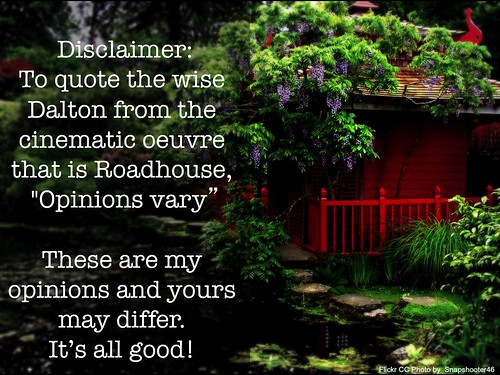
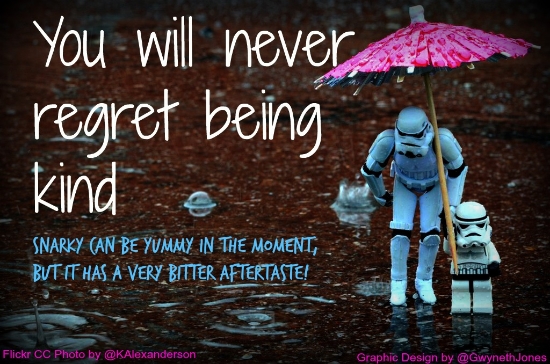
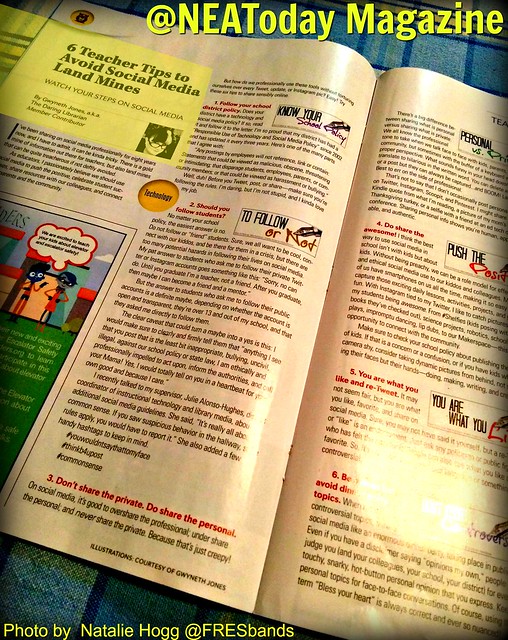
I really enjoyed your article! It made me think about the ramifications of social media. I agree with your policy of not "friending" students! I especially like your explanation! I will have to write that one down for sure! Your Mama is a smart lady when she said, "there is such a thing as an unspoken thought." Thanks for such a great article!
ReplyDelete